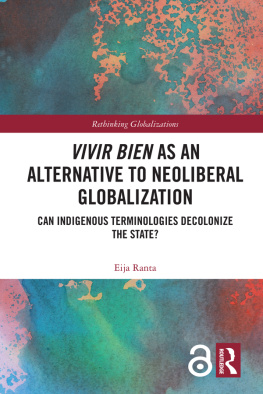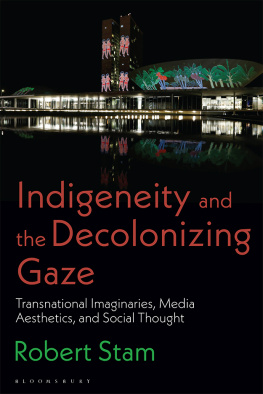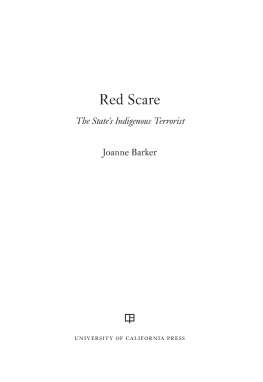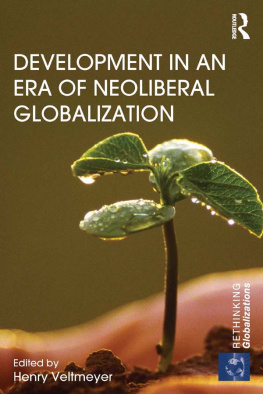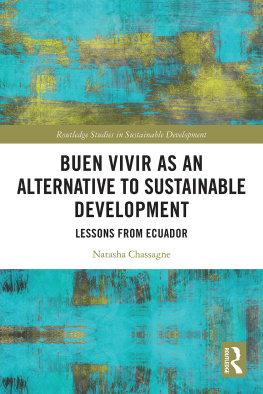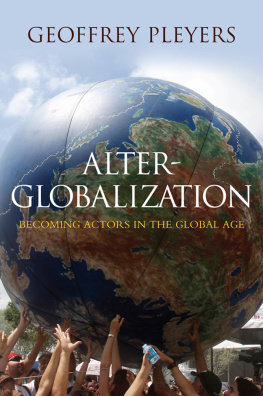A comprehensive and timely contribution to indigenous governmentality, development, and decolonization scholarship. Ranta makes excellent job in examining diverse approaches to Vivir Bien in Bolivian policy transformations.
Pirjo Kristiina Virtanen, Assistant Professor, Indigenous Studies, University of Helsinki
In this historical moment of crisis and disillusionment, this book offers us an introduction to a novel and powerful concept. Ranta writes with precision and passion, rooted in the Andes but contributing to cosmopolitan discussions.
Eduardo Gudynas, Director, Latin American Center of Social Ecology (CLAES), Uruguay
Can indigenous ideas not just challenge but transform the postcolonial nation state? Rantas book interrogates our understanding of indigeneity and of the modern, globalised nation state as well. It demonstrates how indigeneity is not simply a discourse of marginality but how it challenges the very notion of how citizens of all backgrounds relate to the state. Based on a deeply rich ethnography of bureaucracy, Rantas book explores what happens when indigeneity enters into the heart of the nation state.
Andrew Canessa, University of Essex, UK
Vivir Bien as an Alternative to Neoliberal Globalization
Presenting an ethnographic account of the emergence and application of critical political alternatives in the Global South, this book analyzes the opportunities and challenges of decolonizing and transforming a modern, hierarchical and globally immersed nation-state on the basis of indigenous terminologies.
Alternative development paradigms that represent values including justice, pluralism, democracy, and a sustainable relationship to nature tend to emerge in response to and often opposed to the neoliberal globalization. Through a focus on the empirical case of the notion of Vivir Bien (living well) as a critical cultural and ecological paradigm in Bolivia, Ranta demonstrates how indigeneity indigenous peoples discourses, cultural ideas, and worldviews has become such a denominator in the construction of local political and policy alternatives. More widely, the author seeks to map conditions for, and the challenges of, radical political projects that aim to counteract neoliberal globalization and Western hegemony in defining development.
This book will appeal to critical academic scholars, development practitioners, and social activists aiming to come to grips with the complexity of processes of progressive social change in our contemporary global world.
Eija Ranta is University Lecturer in development studies at the University of Helsinki.
Rethinking Globalizations
Edited by Barry K. Gills
University of Helsinki, Finland and Kevin Gray, University of Sussex, UK.
This series is designed to break new ground in the literature on globalization and its academic and popular understanding. Rather than perpetuating or simply reacting to the economic understanding of globalization, this series seeks to capture the term and broaden its meaning to encompass a wide range of issues and disciplines and convey a sense of alternative possibilities for the future.
Chinese Labour in the Global Economy
Capitalist Exploitation and Strategies of Resistance
Edited by Andreas Bieler and Chun-Yi Lee
Brexit and the Political Economy of Fragmentation
Things Fall Apart
Edited by Jamie Morgan and Heikki Patomki
Disintegrative Tendencies in Global Political Economy
Exits and Conflict
Heikki Patomki
Environmental Security in Transnational Contexts
What Relevance for Regional Human Security Regimes?
Edited by Harlan Koff and Carmen Maganda
The Role of Religion in Struggles for Global Justice
Faith in Justice
Edited by Peter J. Smith, Katharina Glaab, Claudia Baumgart-Ochse and Elizabeth Smythe
Vivir Bien as an Alternative to Neoliberal Globalization
Can Indigenous Terminologies Decolonize the State?
Eija Ranta
For more information about this series, please visit: www.routledge.com/Rethinking-Globalizations/book-series/RG
First published 2018
by Routledge
2 Park Square, Milton Park, Abingdon, Oxon OX14 4RN
and by Routledge
711 Third Avenue, New York, NY 10017
Routledge is an imprint of the Taylor & Francis Group, an informa business
2018 Eija Ranta
The right of Eija Ranta to be identified as author of this work has been asserted by her in accordance with sections 77 and 78 of the Copyright, Designs and Patents Act 1988.
The Open Access version of this book, available at www.taylorfrancis.com, has been made available under a Creative Commons Attribution-Non Commercial-No Derivatives 4.0 license.
Trademark notice: Product or corporate names may be trademarks or registered trademarks, and are used only for identification and explanation without intent to infringe.
British Library Cataloguing-in-Publication Data
A catalogue record for this book is available from the British Library
Library of Congress Cataloging-in-Publication Data
A catalog record for this book has been requested
ISBN: 978-1-138-74661-9 (hbk)
ISBN: 978-1-315-18044-1 (ebk)
Typeset in Times New Roman
by Apex CoVantage, LLC
This book is based on my PhD thesis, In the Name of Vivir Bien : Indigeneity, State Formation, and Politics in Evo Morales Bolivia (Ranta 2014), which I produced in the field of critical development studies at the University of Helsinki. My doctoral work was generously supported by the Finnish Graduate School of Development Studies (DEVESTU), and I am deeply grateful for the backing and encouragement that I received from its leader, Juhani Koponen; enormous gratitude is also owed to my supervisors, Jeremy Gould and Maaria Seppnen. The constructive and critical comments of my PhD committee consisting of Barry K. Gills, Rosalind Eyben, Teivo Teivainen, Harry E. Vanden, and Jeffery R. Webber greatly helped me to improve the PhD thesis and, subsequently, this book. I wholeheartedly thank my fellow PhD candidates and members of the community of development studies in Finland for peer support, research companionship, and generosity in commenting on my writing over the years. Special thanks go to Henni Alava, Minna Hakkarainen, Marjaana Jauhola, Helena Jerman, Kaari Mattila, Lalli Metsola, Anja Nygren, Henri Onodera, Sirpa Rovaniemi, Marikki Stochetti, and Gutu Wayessa.
In Bolivia, I am most grateful to Noel Aguirre, Milenka Argote, Leonel Cerruto, Pavel Lpez, Fidel Rocha, Ramiro Saravia, Luis Tapia, and Oscar Vega for their academic collaboration and friendship. The deepest gratitude goes to all my informants in Bolivia, who make an appearance in this book under pseudonyms, although I use the real names of major public figures, activists, and academics whose views are widely known.
Since concluding my PhD studies, I have been privileged to have had a chance to work in Finnish Academyfunded projects led by Juhani Koponen and Elina Oinas, as well as in commissioned research for the Ministry for Foreign Affairs of Finland led by Tiina Kontinen. Even though these projects have not been directly related to the topic of this book, their leaders have encouraged me to revise and transform my PhD dissertation into an academic volume. Consequently, I am deeply grateful and very impressed by the academic leadership skills and humanity of Juhani, Elina, and Tiina. I am also very thankful to have had the opportunity to work as an associate researcher at the Centro Latinoamericano de Ecologa Social (CLAES), Uruguay, under the leadership of Eduardo Gudynas, who warmly welcomed me to work with the theme of Buen Vivir .

